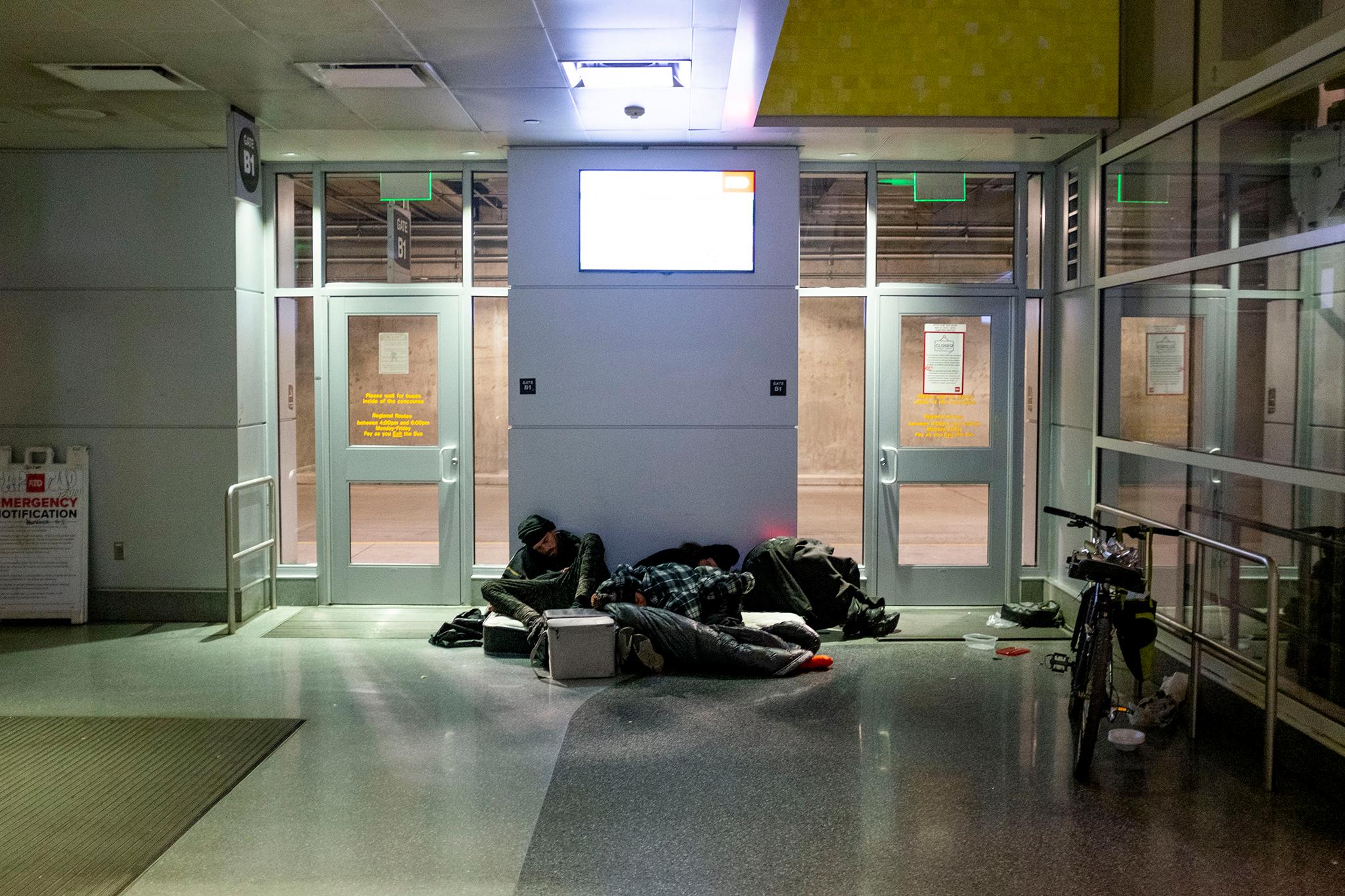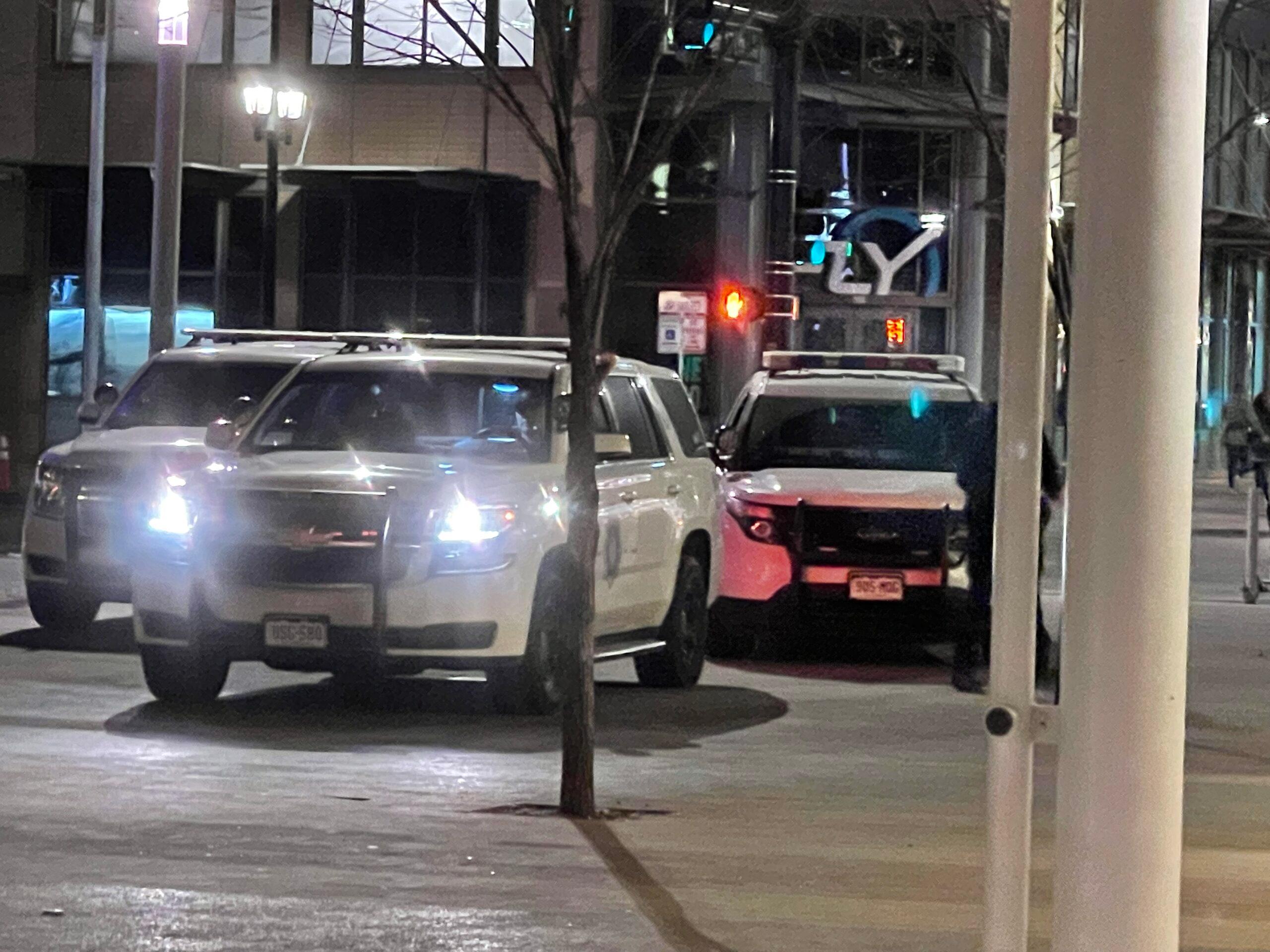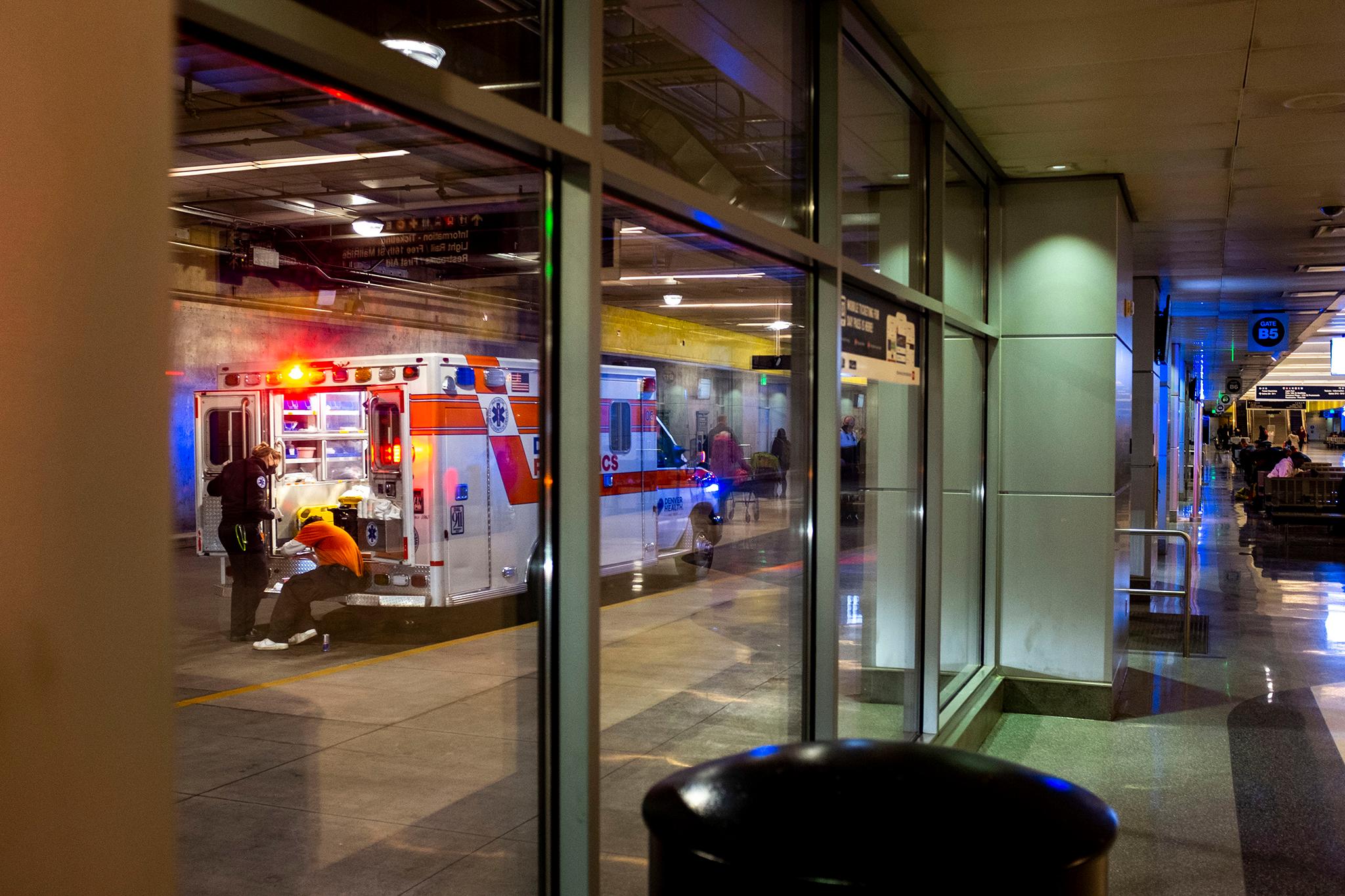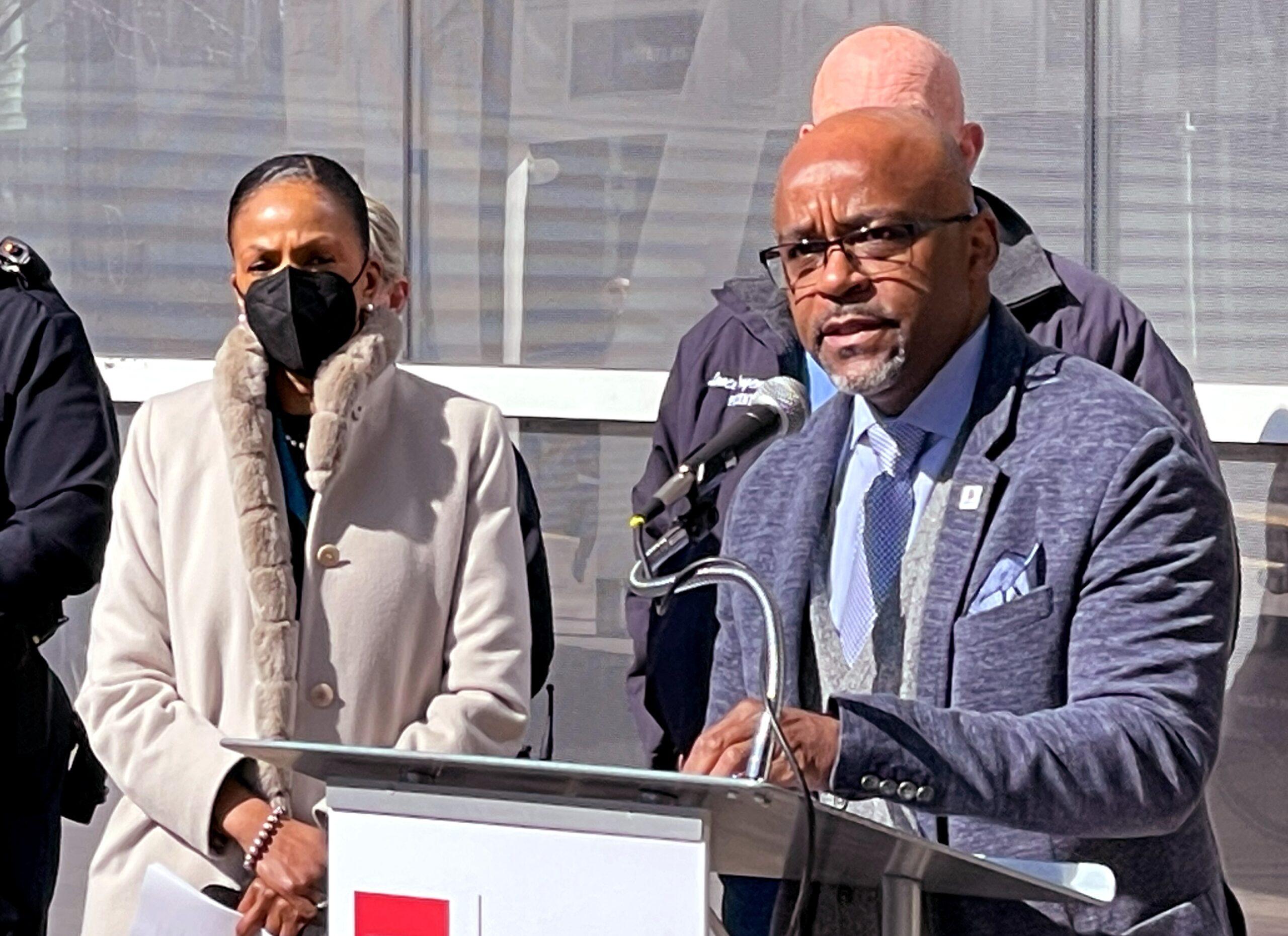Ahead of a press conference, Mayor Michael Hancock spent Wednesday morning touring Union Station, the adjoining underground bus concourse and the neighborhood to see how the city's response to crime in the area is going (or, rather, to show reporters how it's going). He passed people shrouded in blankets, nodding off on benches and carting luggage. Some smelled like campfires. Others, wearing dirty clothes, were doused in cologne.
As Hancock looked around, he said he saw people risking their lives using fentanyl and other dangerous drugs. He could smell the smoke in the air.
The city, he said, has offered these people housing, and they have refused it. Shelter is not what they need, he said. It's "boundaries" -- limits set by the law that would push them toward treatment.
Union Station's bus concourse has seen a spike in crime over the past year. RTD drivers' union has demanded action as have residents of nearby buildings like The Coloradan.
Since the City shuttered Civic Center Park, where many unhoused people were camping, and closed the Central Denver Public Library for renovations, people who had been spending their time in those public spaces moved to other parts of the city.
Many unhoused people moved to Union Station and the surrounding neighborhood, Kam Donda, who is unhoused, told Denverite in December. The bus concourse is a safe place to rest.
But when the mayor looks around, he doesn't see it that way.
"This is not about housing or homelessness," he told a group of reporters. "What we are seeing here is not homelessness. This is about the sale and use of deadly illegal drugs."
Yet drug users spending their days and nights around Union Station have told Denverite that without their basic needs, like shelter, met, they struggle to even imagine seeking treatment.
Hancock doesn't see it that way.
"Providing someone who's very sick like that with just housing doesn't get to the heart of their challenges, because they won't want to remain in the housing," he said. "And they've been offered housing. And I can almost guarantee you, they've been offered the opportunity to be supported by our housing areas. But it demonstrates to you why if you approach it as a housing or homeless issue, you missed the whole point of someone who's very sick with regards to substance misuse."

The mayor plans to address safety issues at Union Station with what he calls "firm compassion." That translates to a muscular police response coupled with offers of social services.
Since the beginning of the year, Denver Police Department has arrested more than 700 people at Union Station, focusing its efforts on RTD's bus concourse.
Since November, there have been 101 arrests for violations of "area restrictions," or people breaking rules of the terminal, including those RTD approved in January like no eating or drinking, no lying or sitting on the floor. People have been charged with trespassing and violent crimes.
Despite the assertion that what's going on in Union Station is about the rise of the synthetic opioid fentanyl, only around a third of the arrests, 233, have been for drug-related crimes.
Hancock said the issue Union Station is facing is not unique to Denver but part of a nationwide synthetic-opioid crisis. He has advocated to state lawmakers, who are weighing a new bill to address fentanyl, that Colorado impose stiffer penalties for possession and distribution of the drug. This proposal has been rejected by the Harm Reduction Action Center, a nonprofit that works with drug users. It argues the city cannot arrest itself out of the opioid crisis.
"If stigma, shame and incarceration worked with drug use, we would have wrapped this issue up years ago," HRAC director Lisa Raville told Denverite earlier this year. "All that has done is drive use underground where folks have acquired HIV/viral hepatitis, and overdoses."
Her hope is that the city considers creating a supervised-use site where users can do drugs under medical supervision and out of the public eye.
"We are wanting to do something different," she said. "Harm reduction initiatives increase public safety efforts and support a healthier and safer Denver today."

Arrests aren't the only way the Denver Police Department is addressing safety issues at Union Station. DPD also worked with RTD on what they are calling "crime prevention through environmental design."
RTD CEO Debra Johnson outlined some of those plans RTD adopted earlier this month. They include opening the bus concourse only to people who have paid for fares. Like New York City subways, the area will be blocked off with turnstiles or similar gates. The goal is to prevent loitering, she said.
There will also be no more electrical outlets where people can charge their phones. Recorded messages in English and Spanish will explain the available services, fares and safety issues. The number of entry points will be limited, security monitors will be added to the main entrances, and lighting will be improved. The police will send more officers to patrol trains and buses.
RTD will use the Transit Watch app, where people can report crime at Union Station and throughout the transportation system.
"If you see something, say something," Johnson said on Wednesday.
The changes at the bus concourse will be rolled out over the next 16 months in an effort to make the area "an open and welcoming environment" and "to be the living room for Denver," Johnson added.
Denver's "Living Room," the nickname for the main hall, is already clamped down to all but those who are spending money in the building. Guards block the restrooms and wander the hall, ensuring the people in the space are patrons, not just members of the general public, who helped fund the $518 million renovations to Union Station.

If the issue of crime at Union Station is going to be addressed, Hancock said he needs to convince all the agencies working in the city to stop viewing what's going on as a homelessness issue.
"That's why I make the point: This is not about homeless, because I got to get my team -- I got to make sure all the authorities are not approaching this as a homeless issue, because we'll never move the needle with these individuals," he said.
Hancock has drug users in his family and has witnessed their struggles to quit using.
"It doesn't happen until they decide, you know what, I gotta fix this," he said. "We can throw all the resources in the world: housing, resources at them, recovery. Until they make that determination, you've got to put some boundaries around them."












